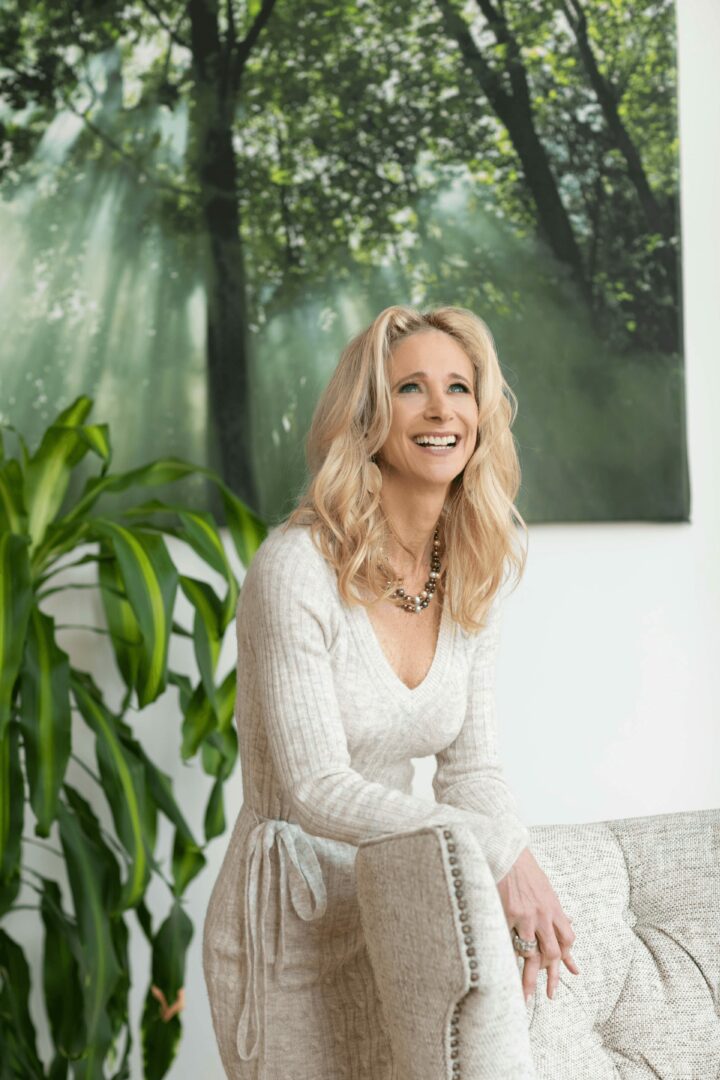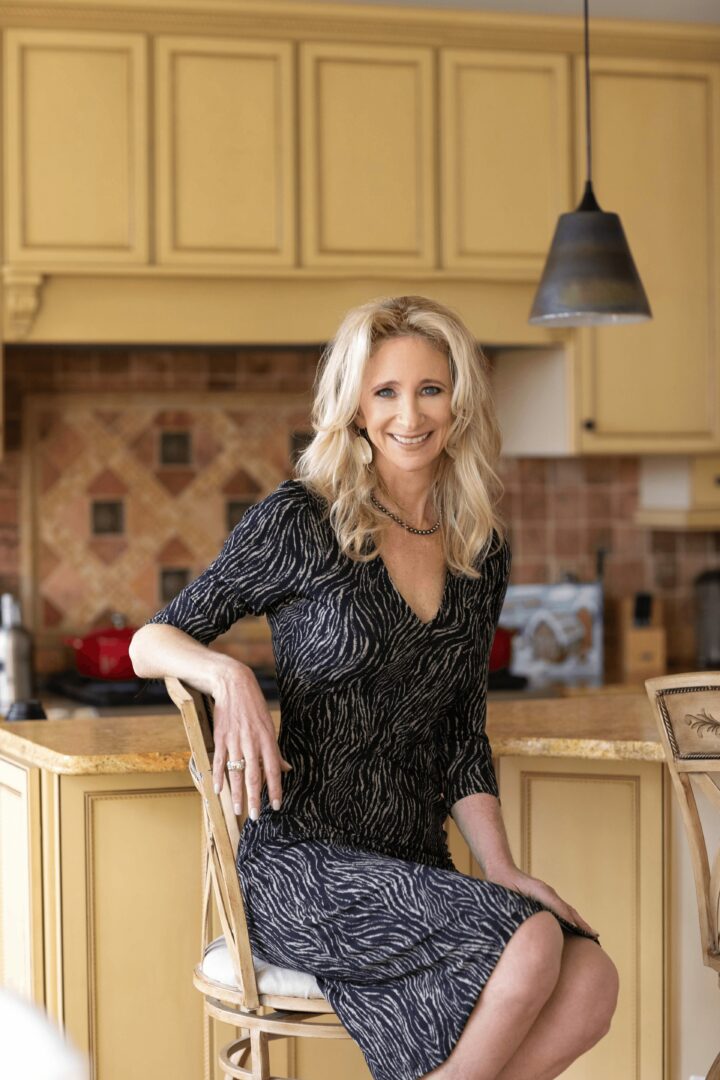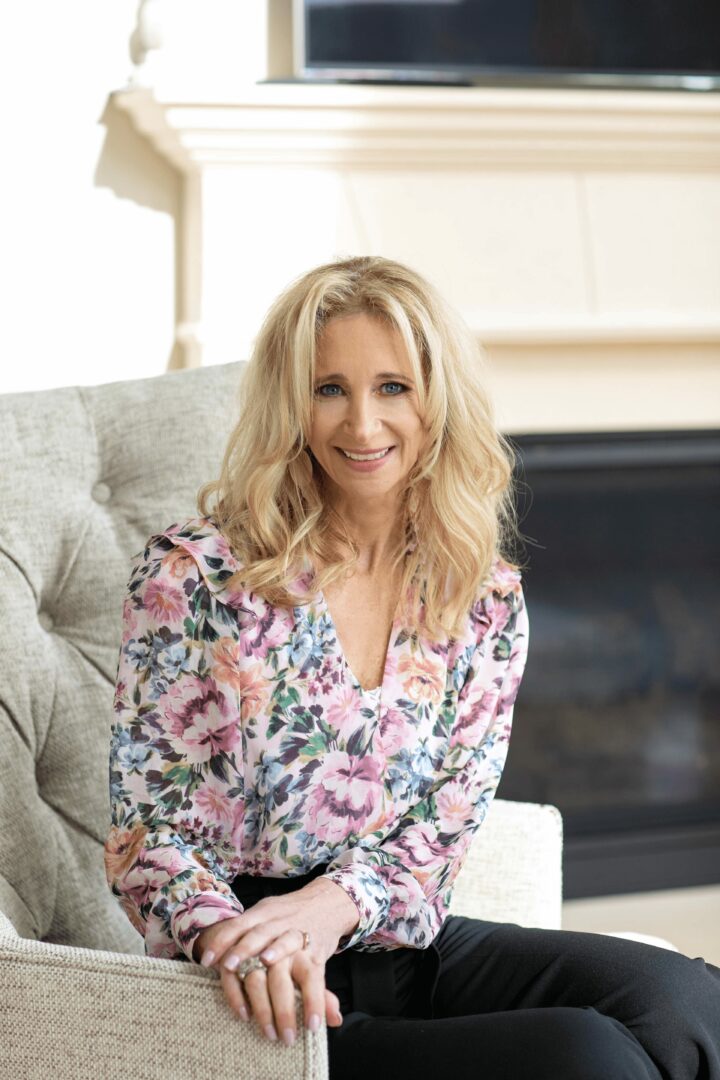We recently connected with Marissa Levin and have shared our conversation below.
Marissa, first a big thank you for taking the time to share your thoughts and insights with us today. I’m sure many of our readers will benefit from your wisdom, and one of the areas where we think your insight might be most helpful is related to imposter syndrome. Imposter syndrome is holding so many people back from reaching their true and highest potential and so we’d love to hear about your journey and how you overcame imposter syndrome.
I chose this question because I want to create a reframing around the concept of impostor syndrome. As someone who has evolved many times along my professional journey, and who has experienced the shedding of multiple roles & identities through my personal & professional life experiences, my wisdom around impostor syndrome is this: Impostor syndrome surfaces in those moments when we have temporarily lost connection to who we are in our soul, and when we allow the voices of comparison to amplify in our minds.
I have built 5 businesses. My business experiences thrust me into environments of constant comparison that were shaped by artificial definitions of “success.” How much revenue did my company generate? What were my profits? How many employees did I have? Who were my customers? How many awards did I win? How much money was I personally making? How much was I featured in the press? It’s so easy to become convinced that these are markers of success because they are everywhere. So, if you don’t have metrics that measure up to peers, you can feel like an impostor – a failure. It’s all a story. None of this equates to “success.” Success is so personal.
In a personal life, it’s no different. Our external metrics may be about our cars, our house, our clothes, our shoes, our handbags, our artwork, our memberships, our vacation homes. Eventually, we come to believe that these window-dressings define our success and self-worth. If we don’t have them, or if we have them but we’ve built a house of cards on an unending line of credit, we question our value.
It is not possible to be an impostor of SELF. There is only one of us. We can only be impostors of a non-self. When we are fully aligned with who we are – despite the ever-changing roles, identities, material accumulations, and monetary milestones, we remain as stable as the sun. The most beautiful act of self-love – and the antidote to “impostor syndrome” – is to honor who we are in our hearts.
This all sounds so simple, doesn’t it? And as you read this, you may be thinking or feeling something like, “I’m completely disconnected from my Self.” It’s not simple. It is the work of our lifetime…. Discovering our Self OR Making our way back to our Self. Both paths require tremendous self-awareness, self-acceptance, self-honesty, and courage. The courage is necessary because inevitably we will disappoint others in our journey to Self. Our view of our Self, our desires for our own life, the choices we want to make – they may in many ways contradict the ideas, expectations, opinions, wants, and needs that others have for us. And they may also contradict the choices we initially made for ourselves as well. So, accepting the fact that we are all in evolution, that we are all a work in progress, that our wants/needs shift and often flow like a river – this is what it means to listen to our inner voice, trust the process of the unfolding of life, and of the unfolding of our Self.
When we quiet the inner chatter AND the external chatter – both the source of Impostor Syndrome – and we listen to our inner voice – we make our way back to Self.
Impostor Syndrome is not the problem. Impostor Syndrome is a symptom of a problem – which is really an opportunity – that it is time to silence the external noise from experiences, expectations, and other people – and make our way back Home to our own hearts and spirits.
The next time you feel Impostor Syndrome creeping into your mind, heart, and spirit as “Not Enoughness” – the next time you feel it settling into your body in the form of anxiety, stress, disconnection, loneliness, and sadness – embrace it with gratitude as an opportunity to shut off the outer chatter, and go inward to remember the amazing gifts you bring to the world, the traits & qualities that make you uniquely you, and to remind yourself that you are perfect the way you are.
Questions to consider when Impostor Syndrome arises:
1: Where in my life do I not feel whole? Where do I feel depleted?
2: Where in my life do I feel not enough, compared to others?
3: Comparison is the death of contentment. To what or whom am I comparing myself?
4: What “metrics” am I using to measure my own life? Where did they come from?
5: What stories am I carrying that validate my “not enoughness?” Where did they come from? What is a new version of that story that turns “not enough” into “enough”?
6: What are 5 qualities I love about myself?
You are YOU. You are yourSelf – the only one in the world. You are real. You are no Impostor.

Appreciate the insights and wisdom. Before we dig deeper and ask you about the skills that matter and more, maybe you can tell our readers about yourself?
MY STORY
I started my first business 30 years ago after my boss told me I would never be worth more than $34,000 to his company. My undergraduate degree was in English; entrepreneurship wasn’t really on the radar. My mom taught me “to never let anyone determine your value or your worth.” When my boss capped my value, I knew it was time to go. I launched my first business with a 4-month $35,000 contract and grew it to $14 million before walking away due to personal and professional reasons. My Master’s Degree was in Organizational Development and Instructional Design, and I built a wonderful training & human capital firm.
My favorite part about building my first business was creating a culture where employees felt valued and safe. This likely grew out of my own experience of feeling devalued and unsafe in my previous company. This also led to the creation of my next company, Successful Culture, which I grew for 13 years until my partner & I successfully sold it.
MY CURRENT COMPANIES & PROJECTS
My current leadership development and education companies focus on Conscious Leadership (i5 Conscious Leadership, LLC) and Joyful Leadership through my umbrella brand, Marissa International LLC. My lifetime legacy mission (LLM) is to empower 1 billion people to live their most joyful lives.
I am also the author of the #1 best-selling book on building advisory boards, “Built to SCALE: How Top Companies Create Breakthrough Growth Through Exceptional Advisory Boards.”
Through my companies, I am launching several programs:
1: Brilliant Boardrooms – a robust learning community and training curriculum on everything leaders need to know about building successful boards. Readers can learn about it at www.builttoscale.info.
2: Joyful Leadership – I have created a Joyful Leadership model that helps leaders fully enjoy the journey of leadership and also build joyful cultures. The components are: Purpose, Potential, Process, People, Presence, and Play. I will be building out training, a mastermind group, and a learning community around this as well.
Through i5 Conscious Leadership, we offer a 16-module curriculum for both emerging and advanced leaders, complete with certification. This has transformed many organizations and leaders. We also offer certification for coaches and facilitators that want to offer this to their clients, and licensing options for companies that want to spread conscious leadership through their organizations.

If you had to pick three qualities that are most important to develop, which three would you say matter most?
The most important qualities for effective leadership are humility, emotional intelligence, and tenacity.
Humility is essential. Arrogance is one of the most detrimental and damaging aspects of leadership.
Emotional intelligence is essential for leaders to truly connect with their employees, peers, team members, customers, etc. It encompasses empathy, compassion, the ability to read people and situations, and the ability to regulate emotions, responses, and reactions.
Tenacity is essential because entrepreneurship and leadership will throw a lot of curve balls, and will pull the rug out from you over and over again. Leaders must be able to get back up without deterioration of enthusiasm.

Awesome, really appreciate you opening up with us today and before we close maybe you can share a book recommendation with us. Has there been a book that’s been impactful in your growth and development?
The most important book in my personal and professional development is “The Four Agreements” by Don Miguel Ruiz. It has been a spiritual and personal development “bible” for me for 25 years. The book identifies the 4 agreements we make with ourselves, and how we will interact with the world around us. The lessons apply to every aspect – every relationship – in our lives.
The agreements are:
1: Be Impeccable with your Word. “Impeccable” means “without sin.” Our Word refers to the messages – spoken and unspoken we tell ourselves and share with everyone else. I say that Words are Wands and Words Make Worlds. Our words are incredibly powerful tools that can create good or do harm. Being mindful and conscious of our words elevates everything in our lives.
2: Don’t Make Assumptions. Society has conditioned us to tell stories about everyone and everything we encounter. When we can come to situations and experiences with a fully open mind free of judgement and bias, we open up the world in a much more expansive way. We see people in ways we may not see them otherwise.
3: Don’t Take Anything Personally, This is very hard for those that are not fully “awake.” Many go through life in a victim state of mind. They take insults personally. They take results personally. The truth is that nothing anyone does has anything to do with us. It is all a reflection of their own beliefs, experiences, and perspectives. Being able to embody this agreement alleviates a lot of life’s suffering.
4: Always Do Your Best. In every moment, commit to doing your best, knowing that “best” changes from moment to moment. Rather than focusing on the outcome, focus on the effort. This will drive the best outcome.
Contact Info:
- Website: https://www.MarissaInternational.com
- Instagram: https://www.instagram.com/marissalevin_official/
- Facebook: https://www.facebook.com/MarissaInternational
- Linkedin: https://www.linkedin.com/in/marissalevin1/
- Youtube: https://www.youtube.com/@marissainternational

so if you or someone you know deserves recognition please let us know here.




